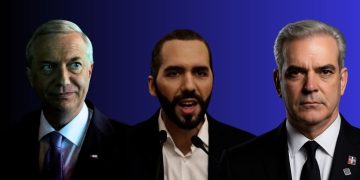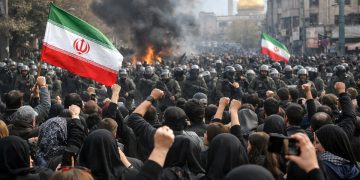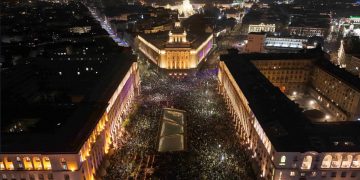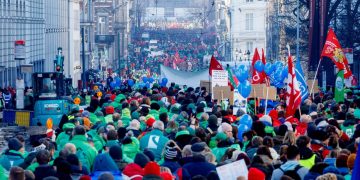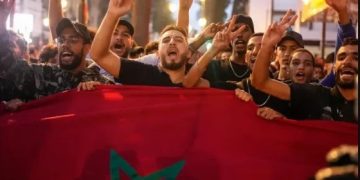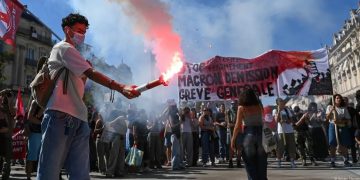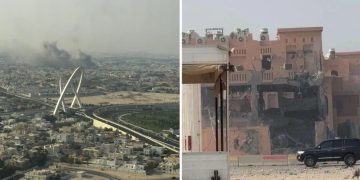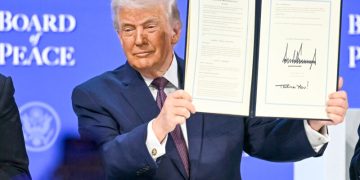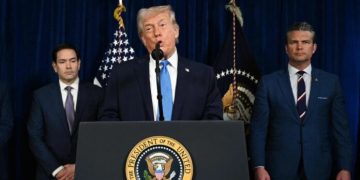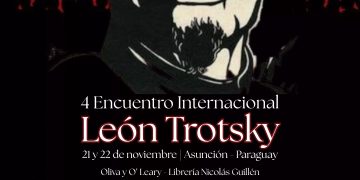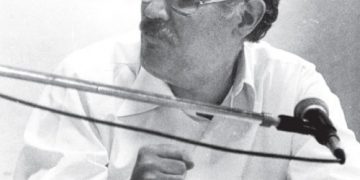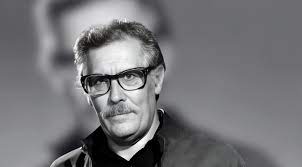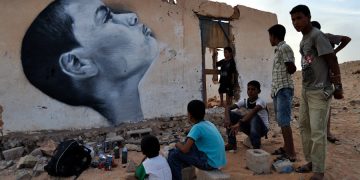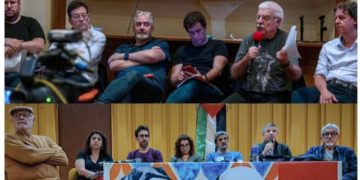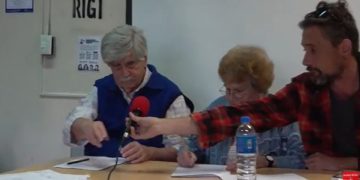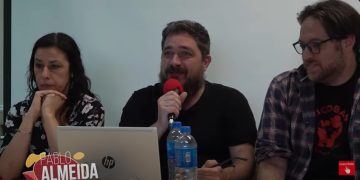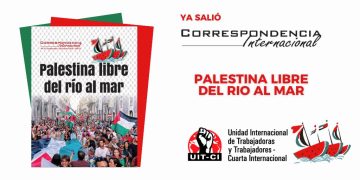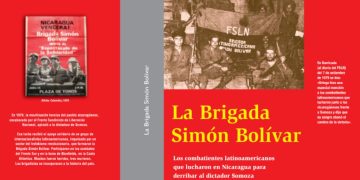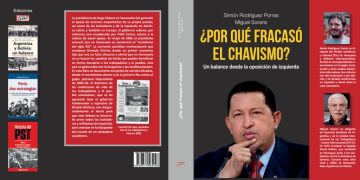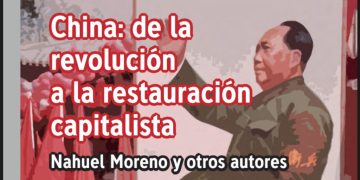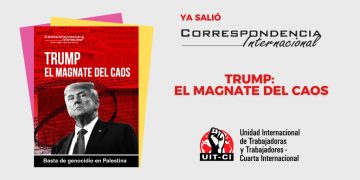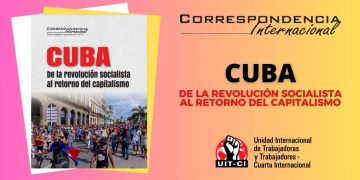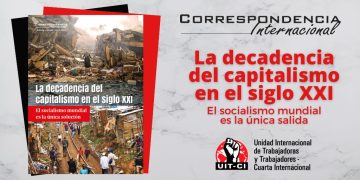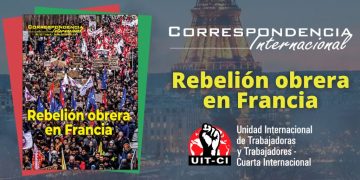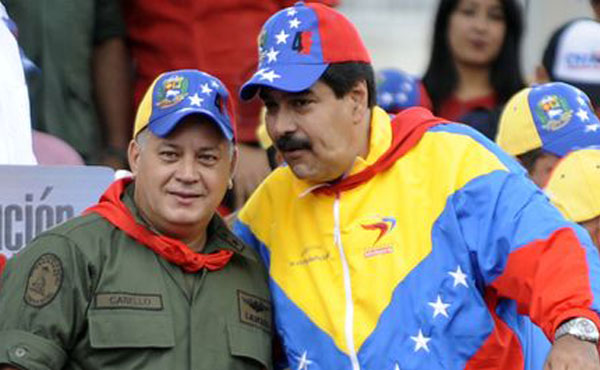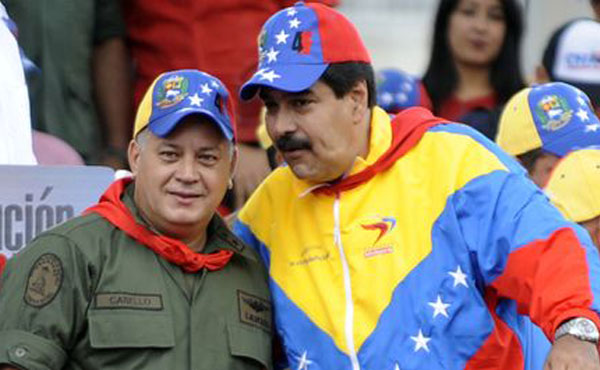 Por Miguel Sorans* (English Version)
Por Miguel Sorans* (English Version)
Los resultados de las elecciones del 14 de abril impactaron, porque pusieron en evidencia que el chavismo entró en su decadencia. Su candidato Nicolás Maduro estuvo al borde de la derrota, cuando ya se daba por fácil ganador. Lamentablemente, se fortalece Capriles y la MUD. Maduro asume muy debilitado. ¿Hacia dónde va el chavismo sin Chávez?
En las elecciones celebradas el pasado 14 abril, Nicolás Maduro (PSUV) obtuvo 7.575.506 votos contra 7.302.641 de Henrique Capriles Radonski (Mesa de Unidad Democrática-MUD), ganando la presidencia por una diferencia de tan solo 272.865 sufragios.
Este escaso margen anunciado por el CNE, la autoridad electoral, estrechamente ligada al gobierno, dio lugar a una crisis política. Miles y miles, no solo la cúpula de la MUD, salieron a reclamar por un reconteo de votos. Hubo varios muertos. La crisis política solo se ha amortiguado debido al retroceso del gobierno y del CNE, que anunciaron una auditoria del 100% de las mesas, por la presión popular, hasta de sectores del chavismo, como de la OEA, que rápidamente reconoció a Maduro, y de los gobiernos del UNASUR, entre ellos Brasil y Ecuador, para evitar una desestabilización política. De producirse, esta situación no conviene a los intereses de las multinacionales del petróleo, que están asociadas al chavismo en PDVSA.
Más de 700 mil votantes populares rompen con el chavismo
El trasfondo de la crisis política está en que más de 700 mil personas que en octubre habían votado por Chávez abandonaron al chavismo y dieron su voto al candidato opositor. Se trata de votantes trabajadores y de sectores populares. Como lo dice la declaración del Partido Socialismo y Libertad (PSL), que encabeza Orlando Chirino, el descalabro electoral del chavismo «es consecuencia directa de la devaluación instrumentada por este gobierno el pasado mes de marzo, que de un plumazo redujo el salario real de los trabajadores en un 46%. Es expresión del cansancio de la población ante los continuos apagones, ante los bajos salarios, ante el deterioro de los servicios públicos y programas sociales, incluidas las Misiones, el empleo precario, la no discusión de los contratos colectivos, la criminalización de la protesta. Mientras, bajo un gobierno supuestamente «socialista», siguen creciendo las ganancias de los empresarios y banqueros. Estas son las verdaderas causas de la crisis política».
Este proceso de ruptura de una franja de trabajadores y sectores populares en sus expectativas con el chavismo se venía dando ya en vida de Hugo Chávez. Se expresó, por ejemplo, en el alto índice de huelgas y protestas populares en 2012. Esta ruptura la pudo contener Chávez en las elecciones de octubre pasado, con su carisma, haciendo una campaña autocrítica, prometiendo el «oro y el moro» y que iba a «cumplir» los postergados compromisos. Entonces, esa franja, volvió a votar por el chavismo, con muchas dudas, dándole una nueva oportunidad. Chávez logró convencer que «peor» iba a ser la derecha gobernando con un «paquetazo» de ajuste.
Pero fue el mismo chavismo, antes de fallecer Chávez, quien lanzó un tremendo «paquetazo», con dos devaluaciones que hundieron el salario y el nivel de vida de millones de venezolanos. Entonces, este 14 de abril miles de votantes chavistas, ya sin Chávez y con un Maduro aplicando un ajustazo y hablando con «pajaritos», cambiaron su voto.
Es un hecho que la MUD y Capriles salen políticamente fortalecidos de las elecciones de abril. El fracaso del proyecto chavista, lamentablemente, ha llevado a que miles de trabajadores y sectores populares le den el voto a la coalición opositora burguesa proyanqui. No se trata de un «giro a la derecha» en la conciencia, sino un voto castigo al chavismo. No es un fenómeno nuevo, sino que pega un salto. En octubre pasado, la derecha había logrado un aumento de más de 2 millones de votos, aunque quedara a 11 puntos de Chávez. Ya entonces la extrema polarización electoral hizo que solo una pequeña franja de luchadores diera el voto por la candidatura clasista y socialista revolucionaria de Orlando Chirino.
Por una alternativa política verdaderamente socialista
La debacle electoral de Maduro muestra que el chavismo ha entrado en su etapa de decadencia. No se trata solo de una «mala campaña» de Maduro, sino que muestra el fracaso del falso proyecto del «Socialismo del Siglo XXI» que, durante 14 años, ejecutó el mismo Chávez. El paquetazo actual es la demostración de que en Venezuela no hubo nunca un «gobierno obrerista» ni «socialista». Chávez nunca rompió con las multinacionales y los empresarios. Se volvió a demostrar que no habrá solución a los problemas de los trabajadores y el pueblo gobernando con empresas mixtas del petróleo, con las multinacionales o enriqueciendo a una nueva «boliburguesía».
En Venezuela sigue «vivito y coleando» el capitalismo. Por eso terminaron aplicando un ajuste típico de los gobiernos capitalistas, donde todos buscan que las crisis la paguen los trabajadores.
La perspectiva, en medio de la aplicación de un nuevo ajuste y de las luchas obreras y populares, es hacia una mayor crisis del chavismo. El gobierno de Maduro asumió muy debilitado políticamente, en medio de una crisis económica y aplicando un ajuste. Sin la presencia de Chávez, le será más difícil frenar las protestas populares y la ruptura de sectores populares con el PSUV. No podemos descartar medidas represivas. Va hay una campaña para intentar despedir a los trabajadores estatales que no hayan votado a Maduro.
Como lo viene señalando el PSL, la salida para los trabajadores no será ni Capriles ni la MUD, sino seguir movilizándose por sus reivindicaciones y construyendo una alternativa política verdaderamente socialista y revolucionaria, de trabajadores, sin empresarios, militares o burócratas sindicales. Este es el gran desafío planteado en Venezuela.
*Izquierda Socialista (UIT-CI) de Argentina
Elections in Venezuela: The decline of Chavism began
By Miguel Sorans, Izquierda Socialista (UIT-CI), Argentina
The results of the April 14 elections had an impact, because they put in evidence that Chavism entered into its decline. Its candidate Nicolas Maduro was on the verge of defeat, when it had been taken for an easy winner. Unfortunately, this strengthens Capriles and the MUD. Maduro assumes very weak. Whither Chavism without Chavez?
In the elections held last April 14, Nicolas Maduro (PSUV) won 7,575,506 votes against 7,302,641 for Henrique Capriles (Bureau of Democratic Unity, MUD), winning the presidency by a margin of only 272,865 votes. This narrow margin announced by the CNE, the electoral authority, closely linked to the government, led to a political crisis. Thousands and thousands, not only the top leadership of the MUD, came to demand a recount of votes. There were several dead. The political crisis has dampened only due to the reversal of the government and the CNE, which announced an audit of 100% of the voting stations, due to popular pressure, even sectors of Chavism, such as the OAS, which quickly recognized Maduro, and the governments of the UNASUR, including Brazil and Ecuador, to prevent political destabilization. If it occurred, this situation would not suit the interests of oil multinationals which are associated to Chavism in PDVSA.
More than 700,000 popular voters break with Chavism
The background of the political crisis is that more than 700,000 people who had voted in October for Chavez abandoned Chavism and gave their vote to the opposition candidate. These are working class and grassroots voters. As the statement of the Socialism and Liberty Party (PSL), led by Orlando Chirino, says: the electoral debacle of Chavism is «a direct result of the devaluation of 46.5% implemented by this government last March that at a pen stroke reduced the real wages of workers. It is an expression of the weariness of the population to rolling blackouts, to low wages, to the deterioration of public services and social programs, including Missions, precarious employment, non-discussion of collective agreements, the criminalization of protest. These are the real causes of the political crisis».
This process of rupture of a band of workers and popular sectors in their expectations with Chavism had already been going on in life of Hugo Chavez. It was expressed, for example, in the high rate of strikes and popular protests in 2012. Chavez could contain this rupture in in the past October elections with his charisma, self-critical campaigning, promising the «thick and thin» and that he would «meet» the deferred commitments. So this band voted again for Chavez, with many doubts, giving him a new opportunity. Chavez managed to convince that it would be «worse» the right ruling with a «shock» adjustment.
But it was the same Chavism, before Chavez dying, who threw a huge «paquetazo»(shock adjustment, TN) with two devaluations that sank the wages and living standards of millions of Venezuelans. Then this April 14 thousands of Chavist voters, already without Chavez and with Maduro applying a big adjustment and talking with «the birds», changed their vote.
It is a fact that the MUD and Capriles come out of the April elections politically strengthened. The failure of the Chavist project, unfortunately, has led thousands of workers and popular sectors to give the vote to the pro-US bourgeois opposition coalition. It is not a «right turn» in consciousness, but a punishment vote to Chavism. It is not a new phenomenon, but it takes a jump up. Last October, the right had achieved an increase of more than 2 million votes, but remained 11 points adrift of Chavez. Even then the extreme electoral polarization caused that only a small band of fighters would vote for the classist and socialist revolutionary candidate Orlando Chirino.
For truly socialist political alternative
The electoral debacle of Maduro shows that Chavism has entered its period of decline. It is not just a «bad campaign» for Maduro, but it shows the failure of the false project of «socialism for the XXI century» that, for 14 years, ran the same Chavez. The current «paquetazo» «(shock adjustment, TN) is the demonstration that in Venezuela there was never a «pro-workers» or «socialist» government. Chavez never broke with the multinationals and the bosses. Once again it proved that there is no solution to the problems of the workers and the people ruling with oil joint ventures, with the multinationals or enriching a new «Bolivarian» bourgeoisie.
In Venezuela capitalism is still «alive and kicking». So they ended up applying an adjustment typical of capitalist governments, where they all seek for the crisis to be paid by the workers.
The perspective in the midst of implementing a new adjustment and of working class and popular struggles is towards a greater crisis of Chavism. The Maduro government assumed very weakened politically, in the midst of an economic crisis and applying an adjustment. Without the presence of Chavez, it will be more difficult to curb popular protests and the rupture of grassroots sectors with the PSUV. We cannot rule out repressive measures. There will be a campaign going to try to lay off state workers who did not vote for Maduro.
As the PSL has been pointing out, the solution for the workers will be neither Capriles nor the MUD, but to continue to mobilize for their demands and building a political alternative truly socialist and revolutionary, of workers, without bosses, military or union bureaucrats. This is the great challenge posed in Venezuela.








